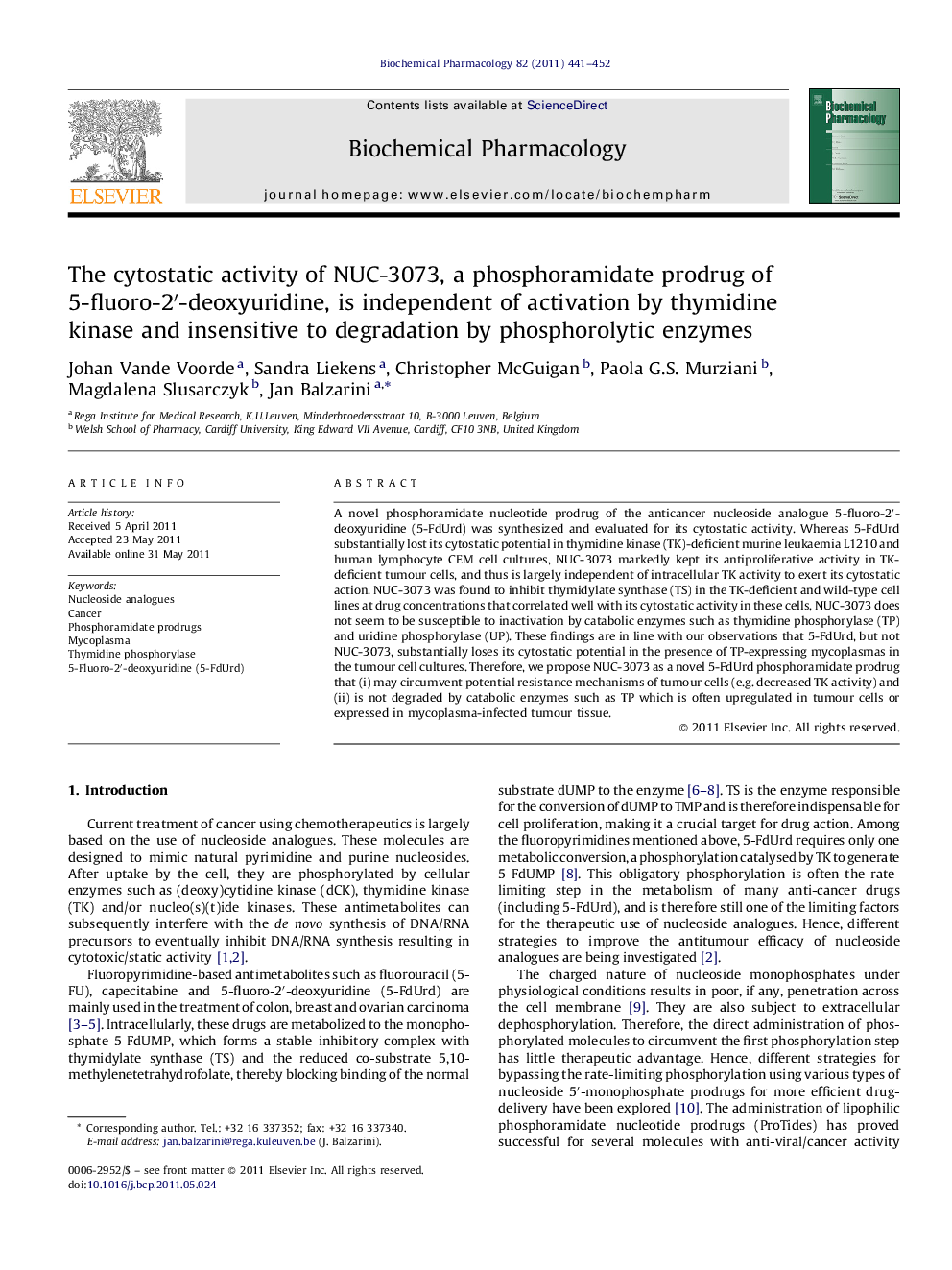| Article ID | Journal | Published Year | Pages | File Type |
|---|---|---|---|---|
| 2513124 | Biochemical Pharmacology | 2011 | 12 Pages |
A novel phosphoramidate nucleotide prodrug of the anticancer nucleoside analogue 5-fluoro-2′-deoxyuridine (5-FdUrd) was synthesized and evaluated for its cytostatic activity. Whereas 5-FdUrd substantially lost its cytostatic potential in thymidine kinase (TK)-deficient murine leukaemia L1210 and human lymphocyte CEM cell cultures, NUC-3073 markedly kept its antiproliferative activity in TK-deficient tumour cells, and thus is largely independent of intracellular TK activity to exert its cytostatic action. NUC-3073 was found to inhibit thymidylate synthase (TS) in the TK-deficient and wild-type cell lines at drug concentrations that correlated well with its cytostatic activity in these cells. NUC-3073 does not seem to be susceptible to inactivation by catabolic enzymes such as thymidine phosphorylase (TP) and uridine phosphorylase (UP). These findings are in line with our observations that 5-FdUrd, but not NUC-3073, substantially loses its cytostatic potential in the presence of TP-expressing mycoplasmas in the tumour cell cultures. Therefore, we propose NUC-3073 as a novel 5-FdUrd phosphoramidate prodrug that (i) may circumvent potential resistance mechanisms of tumour cells (e.g. decreased TK activity) and (ii) is not degraded by catabolic enzymes such as TP which is often upregulated in tumour cells or expressed in mycoplasma-infected tumour tissue.
Graphical abstractFigure optionsDownload full-size imageDownload as PowerPoint slide
